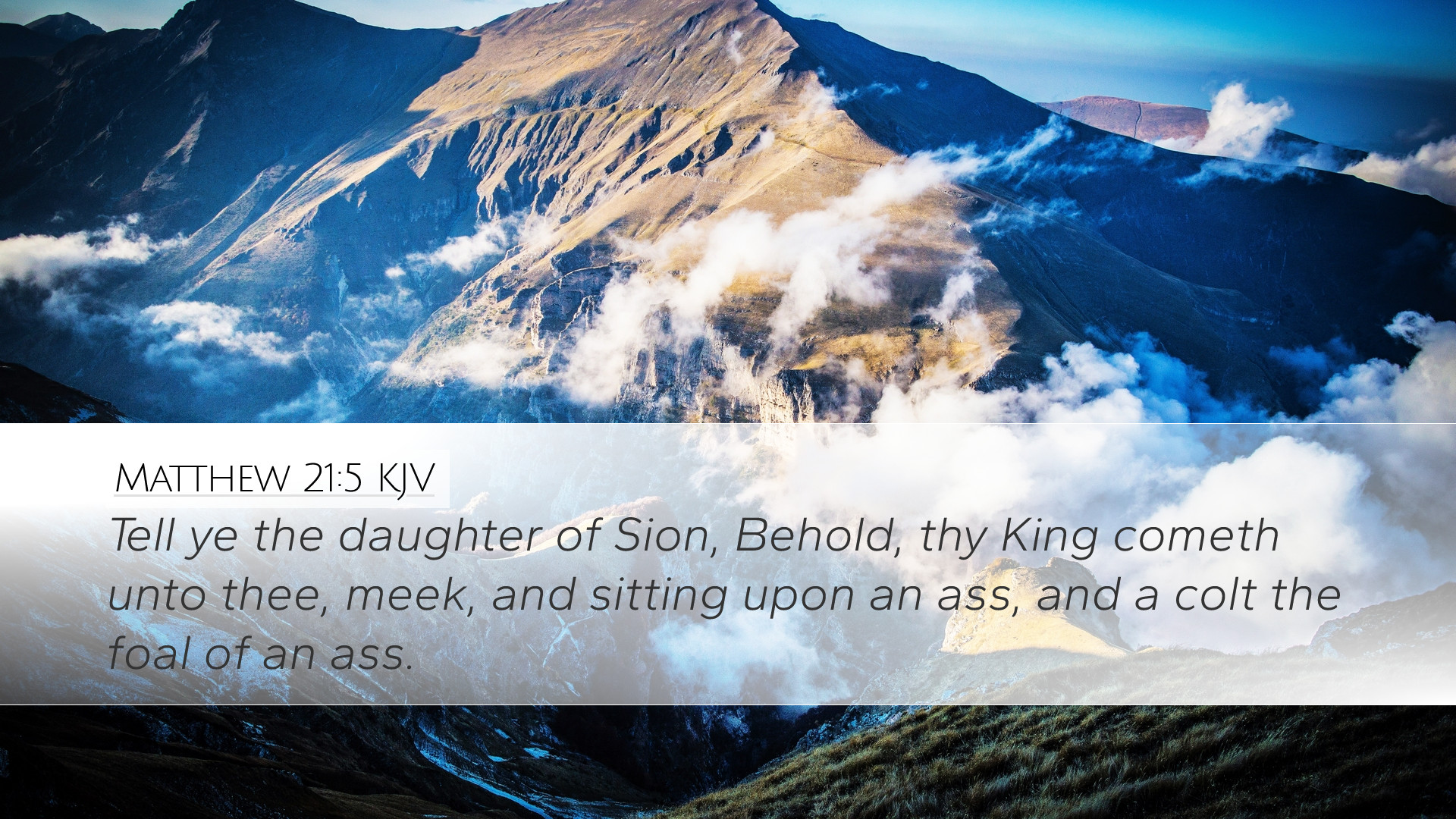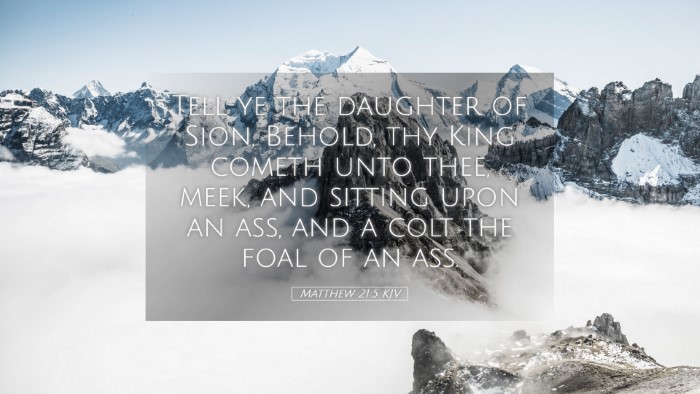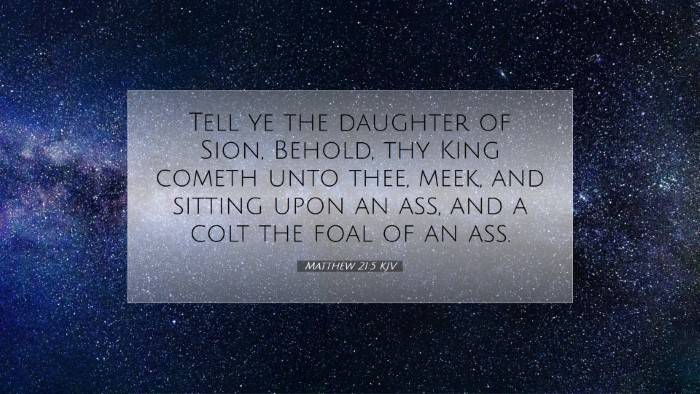Commentary on Matthew 21:5
Bible Verse: “Tell the daughter of Zion, ‘Behold, your King is coming to you, lowly, and sitting on a donkey, a colt, the foal of a donkey.’” (Matthew 21:5, NKJV)
Introduction
This verse from the Gospel of Matthew is significant in the narrative of Jesus' triumphal entry into Jerusalem. It fulfills a prophecy from Zechariah 9:9, demonstrating the fulfillment of Scripture and the nature of Christ's kingship. This text highlights themes of humility, messianic prophecy, and the nature of the kingdom of God.
Exegesis of the Text
Matthew links the events of Jesus' entry into Jerusalem with Old Testament prophecy, underlining that the coming of Christ was anticipated. The phrase "Tell the daughter of Zion" reflects a direct address to Jerusalem, personifying the city as a young woman longing for her king.
Fulfillment of Prophecy
As noted by Albert Barnes, this direct quotation from Zechariah emphasizes the importance this event held in the unfolding redemptive plan. The event fulfills the Messianic expectation, linking Jesus with prophecies concerning the coming of a peaceful ruler. Matthew emphasizes that Jesus is that King who arrives not in triumph but in humility, reinforcing the paradox of His reign.
Humility of the Messiah
The descriptor "lowly" (from the Greek word praus) signifies gentleness and humility. Matthew Henry aptly notes that this demeanor starkly contrasts with worldly expectations of power and dominance. Instead, Jesus models a new kind of kingship—one that subverts human expectations and illustrates the heart of God.
Symbolism of the Donkey
The use of a donkey symbolizes peace and humility. According to Adam Clarke, the choice of a donkey (specifically both a donkey and its colt) signifies that Jesus comes to bring peace rather than war, aligning with the character of His ministry. The imagery of riding a donkey speaks to the fulfillment of the prophecy as a king arriving in peace rather than triumph. Clarke emphasizes that this mode of transport signifies a contrast to kings of the world, who typically would have ridden stallions into a city.
Theological Implications
This passage invites deeper reflection on the nature of the Kingdom of God. The lowly entrance of the King raises critical questions regarding the understanding of authority and leadership. Henry raises the point that Jesus' humility should shape the expectations of His followers. Traditional power structures are challenged by the Jesus narrative, one marked by service, sacrifice, and humility.
Application for Today's Church
For pastors and leaders, the example set forth in this text encourages a leadership model that prioritizes humility and service. The entry of Jesus on a donkey serves as a powerful reminder that true strength lies in vulnerability and submission to God's will.
- Servant Leadership: Emphasizes the need for leaders to model Christ-like humility.
- Community Engagement: Calls for the church to reach out to the marginalized and recognize the ‘lowly’ in society.
- Expectations of the Kingdom: Challenges congregational expectations for success, encouraging a kingdom perspective that honors the humble.
Conclusion
Matthew 21:5 beautifully encapsulates the essence of Christ's mission and His identity as King. It illustrates the paradox of the Kingdom of God, where the first shall be last, and the meek shall inherit the earth. As we reflect on this verse, may our understanding of leadership, power, and authority be transformed by the humility of our Savior. The call to recognize and embrace the lowly aspects of God’s kingdom resounds through the ages, inviting us into a life of service and love.


